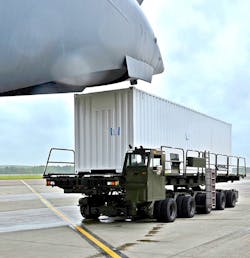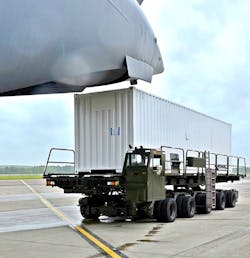Extensive environmental investigations into per- and poly- fluoroalkyl substances (PFAS) contamination at RAAF Base Williamtown, commencing in around 2014, determined that PFAS was present in ground and surface water and was migrating from the Base. As part of the Department of Defence (Defence) response to PFAS contamination, it was determined that surface water flowing through Moors Drain should be treated prior to flowing off the Base.
In March 2017 ECT2 were contracted to fabricate, supply, install and operate a 3.2 L/sec surface water treatment system to assist Defence in reducing PFAS contamination migrating from the Base. In April 2017 the Commonwealth Department of Health decided for drinking water that the Health Based Guidance Values (HBGVs) would be 0.07 μg/l for the sum of PFOS and PFHxS and 0.56 μg/l for PFOA. These HBGVs were therefore established as the treated water criteria to be met by ECT2’s treatment system. In addition to removing PFAS from the surface water, Defence sought to ensure that the treatment process was completed in an environmentally sustainable way, minimizing waste generation.
The water treatment system was fabricated inside a 40-foot international shipping container at ECT2’s facilities in Maine, USA. Installing the treatment system inside the shipping container allowed for easier transportation to Australia and also ensured quality and efficient construction; facilitated operational debugging by specialists prior to transportation; allowed rapid, “plug and play” onsite readiness; minimized system footprint; and accommodated the potential for future expansion.
The water treatment process includes pre-treatment to remove solids, such as small leaf matter and other organics, total organic carbon, and iron, all of which are often found in surface water. Following pre-treatment, vessels containing ECT2’s proprietary SORBIXTM RePURE regenerable ion exchange resin were incorporated to remove PFOS, PFHxS and PFOA as well as other similar PFAS compounds. The final component of the treatment configuration added in a specialty SORBIX resin to remove shorter-chain PFAS, resulting in a robust and world leading PFAS water treatment solution. Commissioned in June 2017, the water treatment system readily achieved the reduction of PFAS concentrations to levels below the HBGVs.
Due to the effectiveness of the system, Defence requested that it be upgraded to manage flow rates of up to 8L/sec to allow more of the water flowing through the drain to be treated before flowing offsite. ECT2 worked closely with Defence to design and install the higher-capacity treatment system, reducing costs and minimising downtime by capitalising on the adaptive design features of the original system. The upgraded treatment system commenced operation in April 2019, and by mid-May 2020, over 305 million litres of surface water had been treated with no exceedances of the treated water criteria. The effectiveness of the treatment process has been consistently demonstrated, including through ultratrace laboratory analysis, showing the concentrations of all monitored PFAS compounds in the treated water to be below the limit of reporting.
Editor's Note: Scranton Gillette Communications and the SGC Water Group are not liable for the accuracy, efficacy and validity of the claims made in this piece. The views expressed in this content do not reflect the position of the editorial teams of Water & Wastes Digest, Water Quality Products and Storm Water Solutions.

